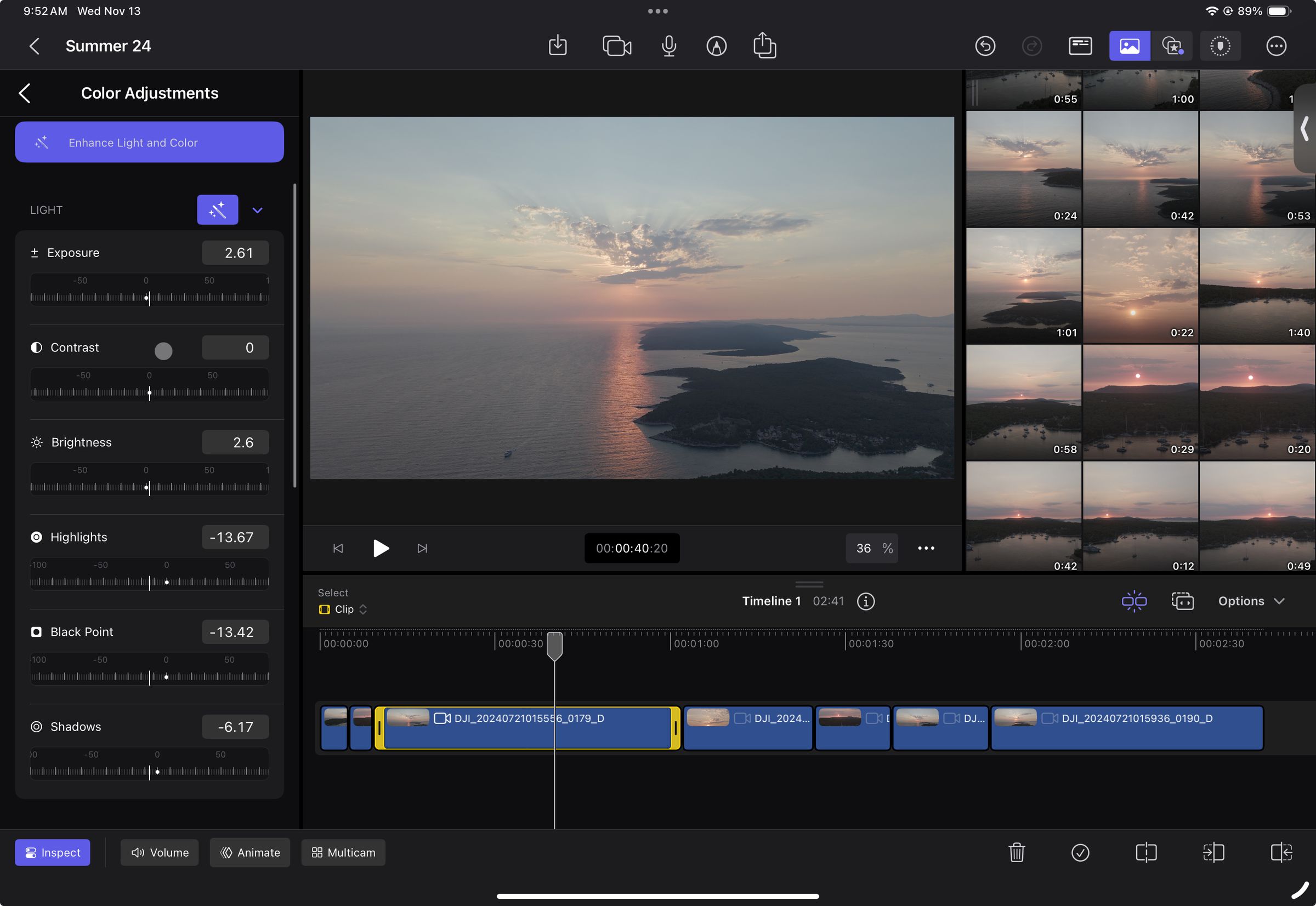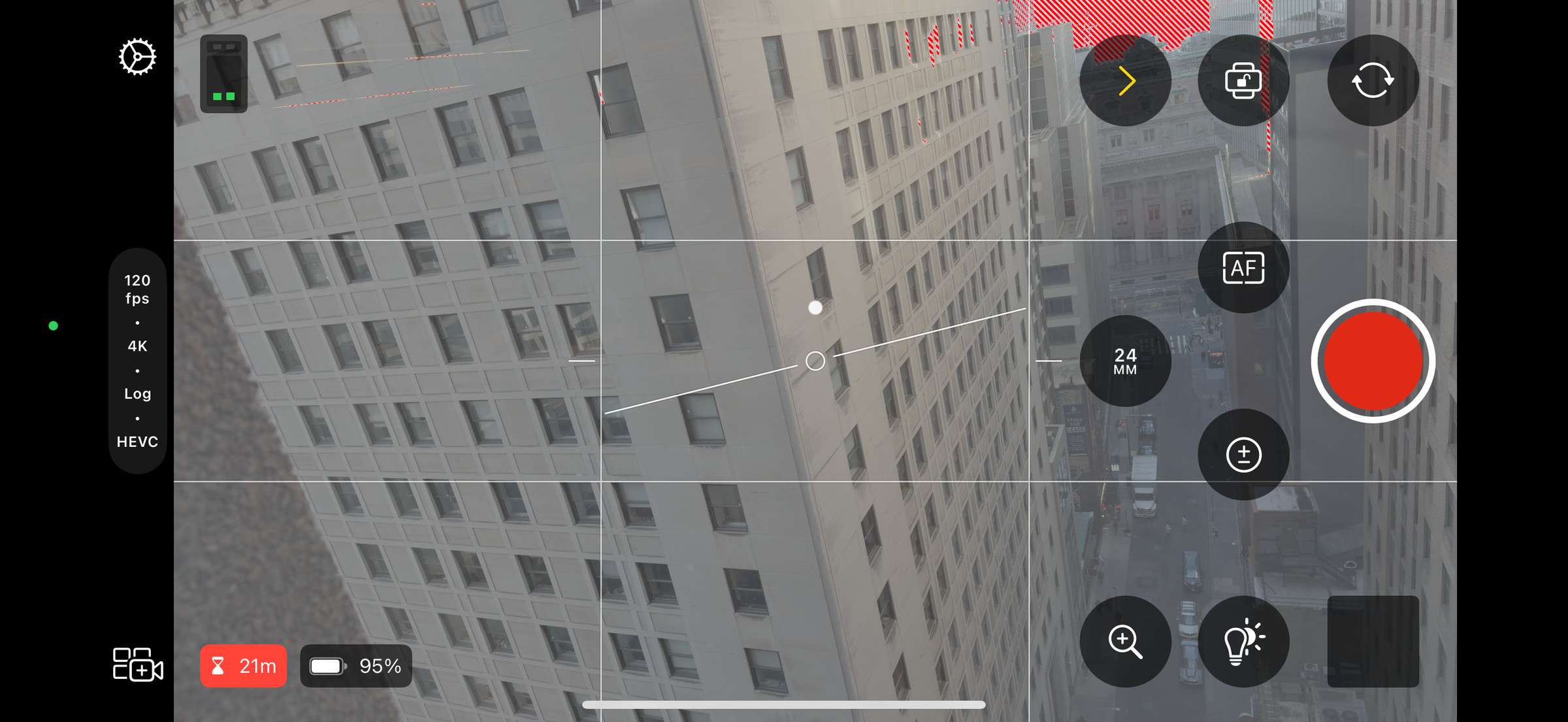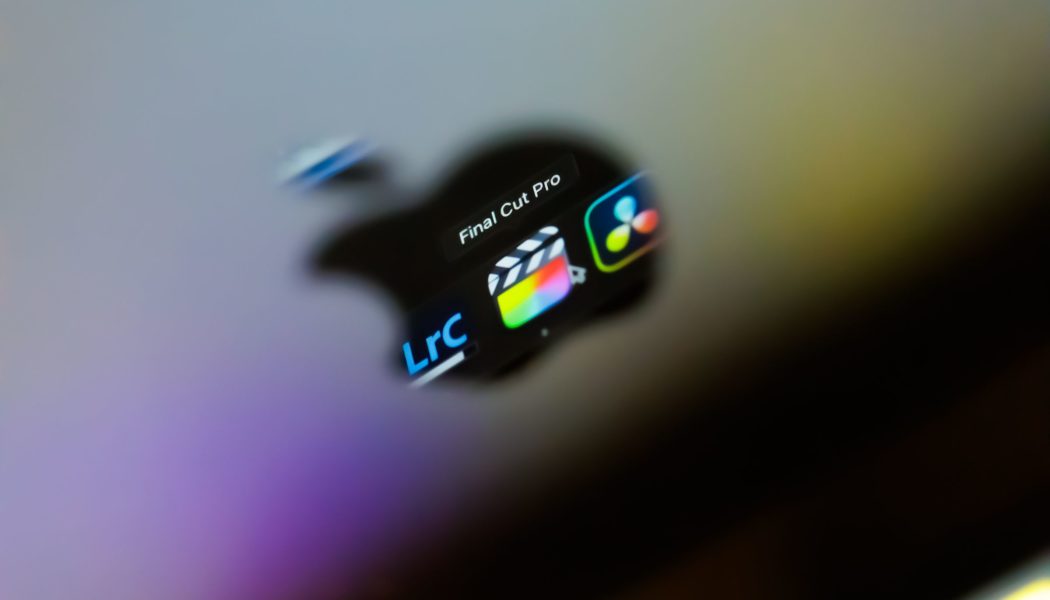The update adds automatic masking, autogenerated captions, and spatial video editing.
Share this story

More than a decade after the launch of Final Cut Pro X, Apple’s video editing software is taking a step forward. The app is now being updated to Final Cut Pro 11, after dropping the number in its name for the past few years. The update includes new AI masking tools, the ability to generate captions directly in your timeline, spatial video editing features, and a set of workflow improvements. The new version is free for existing users and a $299 one-time purchase for new users. Final Cut Pro for iPad and Final Cut Camera are also getting some updates today, too.
I’ve spent the last week testing out these new features, and many of them are great improvements. I’ve been particularly impressed by the speed and accuracy of one new feature coming to the desktop: Magnetic Mask. With one click, you can easily isolate a subject, like a person, from the background and apply different color adjustments to that part of the footage.
I tested Magnetic Mask in various scenarios, like static talking head videos and fast-moving snowboarding footage. In each scenario, Final Cut Pro did a very good job of isolating the subjects. But don’t expect a pixel-perfect mask each time. I still had to jump in and do a few smaller adjustments to help it out. You can either manually fine-tune your mask with a brush or add or remove tracking points and let Final Cut Pro analyze the footage.


I was impressed by the speed of the whole process. Granted, these were fairly short clips (about 45 seconds each), but each mask took less than a minute on my four-year-old 10-core M1 Pro MacBook Pro — a lot less time than the tedious and exhausting process of manually rotoscoping in After Effects.
I did notice that analysis slowed down significantly once I started screen recording my process. This feature will work on Intel-based Macs as well.
I am an avid user of Adobe’s Premiere Pro, but features like these always make me want to give Final Cut Pro another shot. I may not be left behind for long, though: Adobe announced a similar feature for Premiere earlier this year. DaVinci Resolve also already has a similar feature called Magic Mask.
The next new highlight is the ability to autogenerate captions in your timeline. Final Cut Pro does this using an Apple-trained language mode, and the whole process takes place locally on-device without sending information to the cloud. The process is fast but not always accurate and often misspells common words. It fumbled at proper nouns like “The Verge” and even more common nouns like “machine,” where it would just write “macine” instead. Those are just a few of many examples. There’s also no way to stylize your captions if you were hoping to add them to your TikToks. For that, you’ll need to look into some third-party plug-ins.
It is a good update, but I wish Apple went a step further and added text-based editing, which lets you edit videos solely by using text instead of on the timeline itself. Text-based editing in Premiere has helped me immensely when working on longer documentaries or sit-down interviews, and I wish it were possible in Final Cut Pro 11.
Other changes include the ability to edit spatial videos for the Vision Pro and some new keyboard shortcuts. My favorite is Option + Arrow Up / Arrow Down to move clips between layers. It’s the little things!
Final Cut Pro for iPad is also getting a few new updates. The AI-enabled “enhance light and color” tool that was initially released in Final Cut Pro 10.8 for the Mac is making its way to the iPad app. It is the fastest way to quickly improve the color, contrast, and overall tonality of your footage.


In a few tests that I ran, the tool did a really good job of getting me started on my coloring process. It cleans up the overall exposure nicely and adds very subtle stylistic color choices. For far less subtle color grades, Apple is expanding the number of presets available in the app. In addition to those presets, Apple is also adding new modular transitions and new songs to its soundtrack library.
If you’re using the Apple Pencil Pro to edit, you’ll finally be able to unlock all those new brushes that were released alongside the M4 iPad Pro and features like tilt recognition and take advantage of the haptic feedback. Haptic feedback works particularly well on the iPad, and I’m enjoying it more than I thought I would. It really makes the editing process feel a lot more tactile. In fact, I wish more gestures had some haptic feedback.
Lastly, there are some minor but significant workflow improvements. You can now resize the height of your clips in your timeline by using the pinch gesture, you can edit in 120fps timelines, and the picture-in-picture mode is dynamic. Apple also mentioned there are new keyboard shortcuts, but I’ve only found one: Render Entire Timeline.
I’m glad to see more frequent updates coming to the iPad version of Final Cut Pro, but there are still features that are desperately needed to really make this app worth the $4.99 a month subscription plan. At the top of my wish list are things like custom LUTs, better file management, and some of the other AI-powered features that have already made their way to the desktop version. Since my initial review, I’ve mostly started using DaVinci Resolve on the iPad, which continues to impress me with how similar it is to its desktop equivalent.
The trifecta of updates ends with the Final Cut Camera, which can now film HEVC files in Apple Log — no need to stick with storage-hungry ProRes files anymore. HEVC Log capture will work for both standalone capture or as part of the Live Multicam session. Final Cut Camera will also include LUT previews during recording, meaning you can monitor your exposure and color while filming in Apple Log.


And in order to make sure your framing is correct and aligned, Apple is adding a new level indicator to the app. The new leveler includes tilt and roll indicators and crosshairs for your top-down and bottom-up shots, too.
The introduction of new AI features and workflow improvements mark significant steps forward for content creators, but they don’t address some of the community’s requests to fully compete with the likes of DaVinci and Adobe. I’d still like to see text-based editing, more robust coloring options, and custom captions. It will be interesting to see if these new updates convert any new users. Magnetic Mask alone could be enough of a reason to switch.










